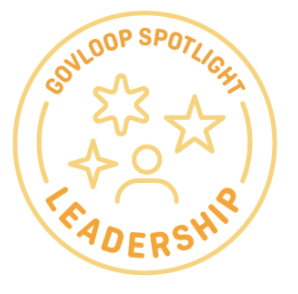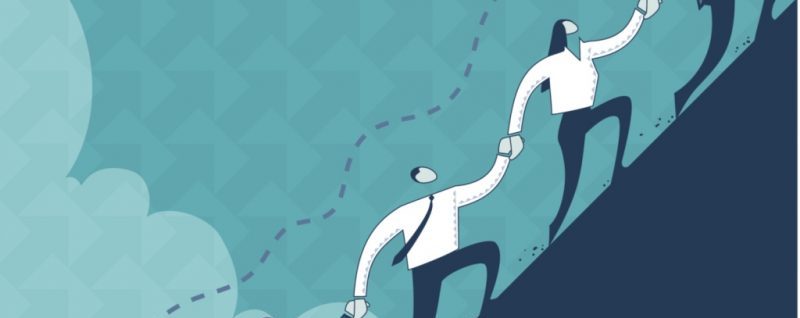By Gary Norman
All of us have observed the changes in attitudes regarding virtual workplaces and augmented or virtual social engagements. Technologies – including the emerging variety – could increase opportunity and equality. Yet nothing proves perfect in life, requiring a range of diverse allies to help navigate this “new normal.”
Technology: promise or peril
Aristotle said that as humans, we are social animals. Therefore, we are wired to engage in allyship. This is a fact that the disabled know in spades. As a diverse leader, partnered with my third guide dog, I am optimistic of the opportunities technology and emerging technologies enable. Yet allyship will always require an element of strong, diverse leadership. If for no other reason, the more complex the “new normal,” the more IT help is needed.
Evolving technology and the blind
In my life, I have seen technology fundamentally transform. A vacation at the beach recently reminded me of this.
Originally, my books arrived piecemeal through the mail. I recall the age when these were provided via clunky cassettes. For a lot of my education, I relied on human readers and on my memory. I recently shared with small-town mayors that the iPhone and the screen-reader it provides could seem like magic to humans living in the distant past.
Nowadays, I have many books on my iPhone. All the opuses I wish to access via online means are compressed files downloadable from the web. The Library of Congress possesses a division or office dedicated to providing reading and other materials to those with print-based disabilities. Increasingly, many blind people, such as me, perform a download of books from a mobile application. Yet a gap exists between the blind and equal reading access. If the sighted can access 100 titles on conflict resolution coaching, then the blind subscriber to a service may only find a few titles.
I recently used my iPhone to arrive at the conference where I spoke to small-town mayors. A version of a screen-reader, called voiceover, on the iPhone verbalized the shared-economy driver application to me as a blind person. Likewise, I accessed my e-mail, reading my notes for the panel presentation.
Allyship and emerging ways of working
Since the advent of the COVID-19 pandemic, I have collaborated remotely with my assistant. That has been true even when the laptop has been a bear. We meet via Zoom to engage in various functions for me as a senior staffer, as only so much can be trusted to the formatting abilities of a screen-reader. When my laptop has been a bear, he has shown himself as my ally in helping me to resolve problems or to update the screen-reader. While I enjoy this access and this powerful ally, I must recognize my own privileged status to be employed with various forms of relational and financial resources to help me during the inevitable problems with my virtual private network (VPN).
According to social science research, disparities exist in accessing these assistive technologies. Specifically, many people with disabilities or older adults with undiagnosed or unaccepted disabilities may not experience the benefits of technological transformation. Cost may inhibit equal access, and training may also prove a barrier.
In regularly buying my software license update for my screen-reader at the house, I often remember the cost technology access derives in the blindness community. Specifically, the screen-reader that I use, Job Access for Windows, could prove costly for some. Despite all the Executive Orders (EOs) of the world and special emphasis activities, many people with disabilities may be unemployed or under-employed without financial resources. In addition, training alone can be a barrier to these concomitant revolutions.
Colleagues, employees or managers with disabilities may well be your ally on technology and more so assistive technology because of their need to be adaptable to change. In turn, a non-disabled colleague may return the favor. In sum, we all must use our status as the beneficiaries and givers of allyship to ensure that all less fortunate than ourselves prosper.
Non-disabled allies in our lives
An instructor and non-disabled colleague recently collaborated with me on accommodations for a course. She modeled the public actor we desire as to accessibility, inclusion and usability. The instructor obtained a version of the book and the course manual, translating these to accessible PDF-based documents that would function with my screen-reader. Specifically, as she learned with my help, PDF documents require concentrated attention by their creators to be accessible and usable.
Moreover, she learned — with the help of my non-disabled colleague and me — how to use the most robust version of captioning via Zoom. Two professionals with disabilities attended the course, showing hope for expanded visibility by professionals with disabilities. My non-disabled colleague and I attended the course on coaching together as a joint project. Such that we could be an ally to each other. We conducted regular Zoom calls, shared notes via e-mail and even increased the speed of videos we had to watch outside of class to twice the normal speed.
A disability may supply our non-disabled spouses a richness that they would be at a loss without. In turn, my wife has defused my access challenges in multiple contexts, including technology. Every time I wanted to bludgeon my laptop this past year, she has helped me to defuse the situation by managing an IT expert to address my challenge. She has also been an intervening bystander in many situations filled with bias or illegal discrimination, helping me to manage those situations better than I would have by myself. I realize as a journeyman husband with my dog that this allyship comes at a cost to our non-disabled spouses.
Even with the most advanced technologies of the future, allyship will never be an unhelpful element of life whether by an assistant, a dog, a friend or even a spouse.
Mr. Norman, a lawyer, emerging journalist and consensus-builder, received the Administrator’s Award at the Centers for Medicare & Medicaid Services in 2020 for his work on healthcare accessibility and quality policy related to people with disabilities. In November 2019, Mr. Norman served as a Fellow at the invite-only Public Policy Conflict Resolution Fellowship. In 2015, he served as a Visiting Fellow at the non-partisan Robert J. Dole Institute for Politics. He established a multi-year, non-partisan symposium on animal law and policy, brokering regional or even national experts together. The dog or dogs of Mr. Norman are usually nearby chewing on a bone.






Leave a Reply
You must be logged in to post a comment.